#mohammed el kurd
Text
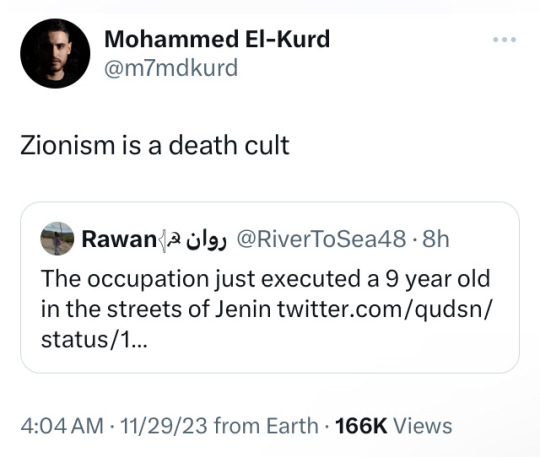
(Nov. 29)
10K notes
·
View notes
Text

Mohammed El-Kurd, from Rifqa; “Rifqa”
[Text ID: “I cried—not for the house / but for the memories I could have had inside it.”]
#mohammed el kurd#palestine#free palestine#trauma#home#homeland#loss#memories#excerpts#writings#literature#poetry#fragments#selections#words#quotes#poetry collection#typography
9K notes
·
View notes
Text

"The rallying cry that we are all Palestinians must abandon the metaphor and manifest materially. Meaning, all of us—Palestinians or otherwise—must embody the Palestinian condition, the condition of resistance and refusal, in the lives we lead and the company we keep. Meaning we reject our complicity in this bloodshed and our inertia when confronted with all of that blood. Because Gaza cannot stand alone in sacrifice."
Are we indeed all Palestinians?MOHAMMED EL-KURD
3K notes
·
View notes
Text

Mohammed El-Kurd, from Rifqa; "This Is Why We Dance"
5K notes
·
View notes
Text

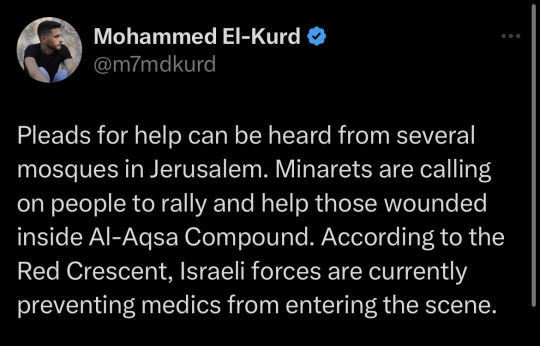
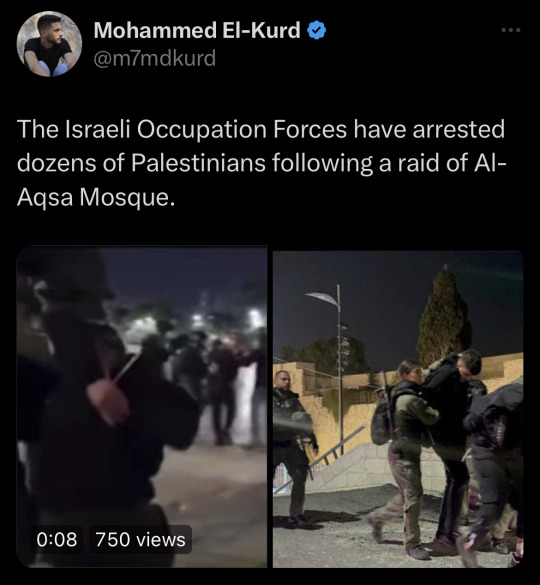
X X X
All eyes on Al-Aqsa mosque
#palestine#free palestine#mohammed el kurd#cw police violence#cw police brutality#cw settler violence
4K notes
·
View notes
Text
When I go onstage, I usually joke a lot. I joke on purpose, first of all because I want to believe I’m funny. But there’s another reason: Any Palestinians operating in the public eye, especially Palestinians who have suffered Israeli violence, are expected to behave a certain way. You are supposed to be miserable—head bowed, wailing and weak and asking for mercy. You’re supposed to be polite in your suffering. And I completely refuse this. I refuse these politics of appeal. I don’t want to appeal to anyone. I can experience travesty and tragedy, and profound loss, and I can still make a joke about it. And that is the full spectrum of Palestinian humanity—or human humanity at large. We are human not just because we cry when we lose our mothers, or when we lose our homes, or because we have pets or hobbies. We are humans because we feel rage and we feel disdain—because we resist.
And I am honestly grateful for my disdain, because it reminds me that I am human. I am grateful for my rage, because it reminds me of my ability to react naturally to injustice. I am grateful for the opportunity to be flippant, to satirize and ridicule my impenetrable, indelible occupier. So, I invite you all to interrogate your biases as you leave this lecture, to interrogate what makes you want to qualify a Palestinian’s humanity. And I invite you, again, to be brave.
Mohammed El-Kurd, The Right to Speak for Ourselves.
[emphasis added]
739 notes
·
View notes
Text
"On Zionist Feelings"
By Dr. Randa Abdel Fattah, excerpt below
https://mondoweiss.net/2023/12/on-zionist-feelings/
Last month, Jewish Zionists were “outraged,” “profoundly saddened and disappointed,” and felt their ‘safe space’ threatened and disturbed by three actors in a Sydney Theatre Company stage production who wore Palestinian keffiyehs during curtain-call. Donors withdrew, a petition garnered over 1000 signatures, one performance was canceled, three board members resigned, and the company went into a frenzy of damage control and issued statements of apology about “safe spaces,” “harm,” and “offense.” One board member resigned because there was “no apology from the artists” for a gesture that “traumatized Jewish members of the audience.” Resigning from the company’s philanthropic foundation in protest, another prominent donor Judi Hausmann wrote, “I never imagined my resignation would be necessary because I’m a Jew.”
In all these instances, expressions of Zionist fragility expose a calculated, purposeful strategy of insisting on the status of victim when confronted with the material fact of Palestinian existence and the solidarity of others. That the cultural presence of the keffiyeh on stage is enough to trigger Zionists in the audience and Zionist board members reveals how the fragility of Zionist privilege is being challenged at a moment of global awakening and reckoning of the genocidal violence of the colonial settler project. The keffiyeh, as a symbol of anti-colonialism and anti-racism, thus disrupts the Zionist narrative of victimhood and centers Palestinian resistance as a struggle for freedom and self-determination, supported by people across the world in their thousands, in their millions.
What is grotesque in the weaponization of Jewish ‘trauma’ over a symbol of cultural significance is the fact that at that very time, the Palestinian death toll from Israeli airstrikes and bombardment had reached over 15,000. It is now over 25,000.
Dr. Randa Abdel Fatter does an amazing interview with Mohammed El Kurd below, but read the article first. Both are quite short, cw for mention of violence.
youtube
303 notes
·
View notes
Text
This is why we dance:
Because screaming isn't free
Please tell me:
Why is anger- even anger- a luxury to me?
-Mohammad El-Kurd, "This is Why We Dance," from "Rifqa"
341 notes
·
View notes
Text

Mohammed El-Kurd
110 notes
·
View notes
Text
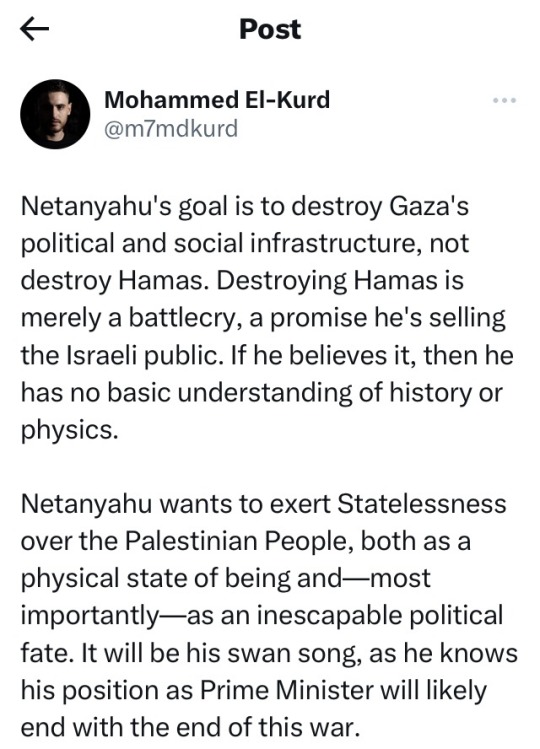

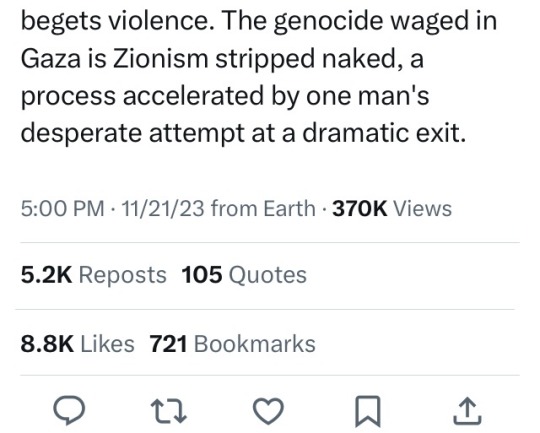
(Nov. 21)
1K notes
·
View notes
Text

Mohammed El-Kurd, from Rifqa; “This Is Why We Dance”
[Text ID: “This is why we dance: / If I speak, I’m dangerous. / You open your mouth, / raise your eyebrows. / You point your fingers. / This is why we dance: / We have wounded feet but the rhythm remains, / no matter the adjectives on my shoulders. / This is why we dance: / Because screaming isn’t free. / Please tell me: / Why is anger-even anger-a luxury to me?”]
#mohammed el kurd#palestine#free palestine#trauma#loss#anger#excerpts#writings#literature#poetry#fragments#selections#words#quotes#poetry collection#typography
745 notes
·
View notes
Text
"We are human not just because we cry when we lose our mothers, or when we lose our homes, or because we have pets or hobbies. We are humans because we feel rage and we feel disdain—because we resist.
And I am honestly grateful for my disdain, because it reminds me that I am human. I am grateful for my rage, because it reminds me of my ability to react naturally to injustice. I am grateful for the opportunity to be flippant, to satirize and ridicule my impenetrable, indelible occupier."
The Right to Speak for Ourselves - Mohammed El Kurd
255 notes
·
View notes
Text

Mohammed El-Kurd’s full remarks from today’s 500K person march in London (13 Jan 2024)
927 notes
·
View notes
Text

From: Against Erasure. A Photographic Memory of Palestine Before the Nakba, Edited by Teresa Aranguren and Sandra Barrilaro, Foreword by Mohammed El-Kurd, Haymarket Books, Chicago, IL, 2024
#graphic design#history#photography#book#cover#book cover#teresa aranguren#sandra barrilaro#mohammed el kurd#haymarket books#2020s
62 notes
·
View notes
Text
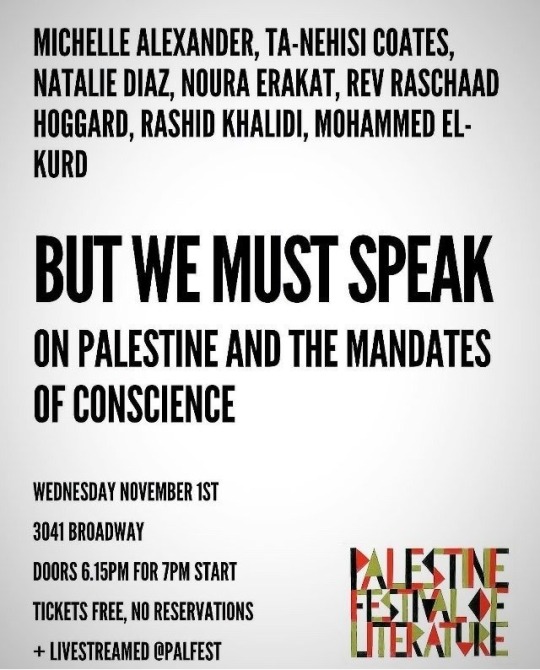
TONIGHT @ 7PM EST
The Palestinian festival of literature is hosting a panel titled “BUT WE MUST SPEAK ON PALESTINE AND THE MANDATES OF CONSCIOUS” featuring notable guests:
MICHELLE ALEXANDER - Black civil rights lawyer and author of “The New Jim Crow”
TA-NEHISI COATES - Black Award winning writer
NATALIE DIAZ - Award winning Mojave American poet
RASHID KHALIDI - Palestinian- American professor and historian
MOHAMMED EL-KURD - Notable Palestinian journalist, writer and poet.
There will be updates about the ongoing genocide of Palestinians, poetry readings, and additional discussions. Please attend!
Palfest will be streaming it live on their YouTube channel, link below:
#i highly respect all of their work it looks like it's gonna be really informative#palestine#ta nehisi coates#michelle alexander#natalia diaz#rashid khalidi#mohammed el kurd#free palestine
98 notes
·
View notes
Text
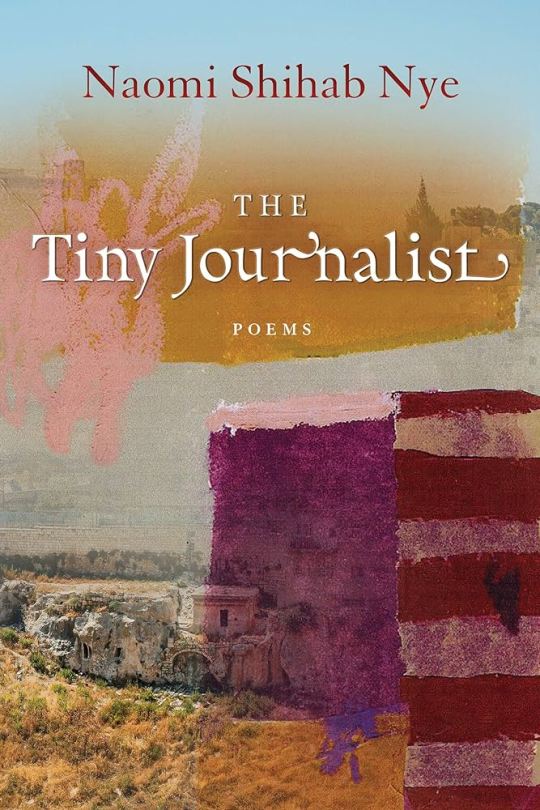

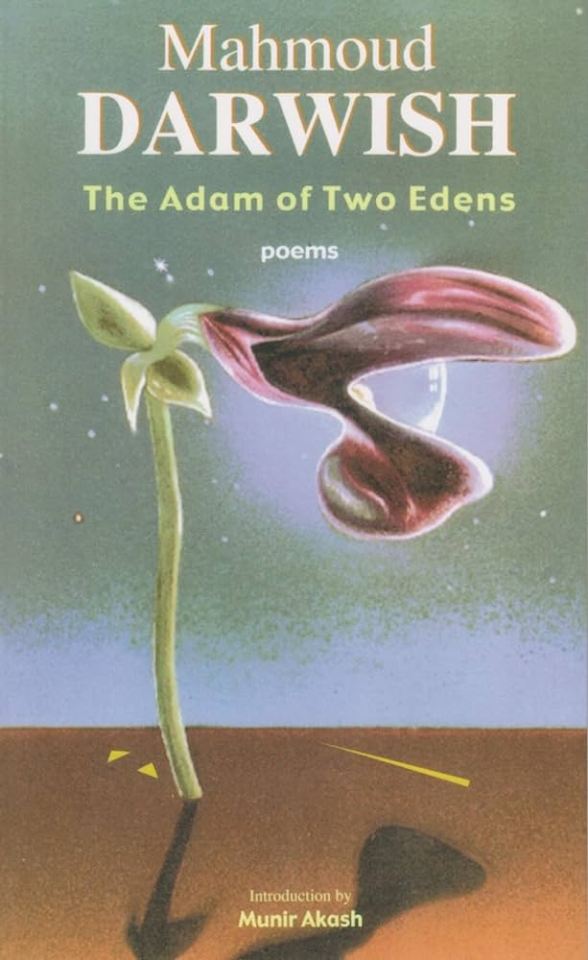
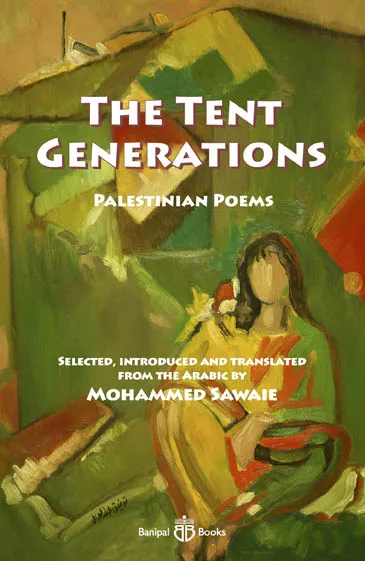
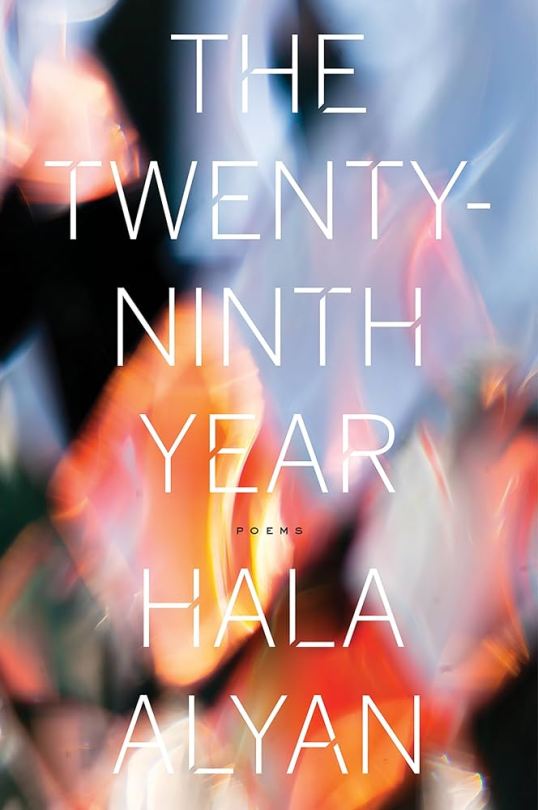

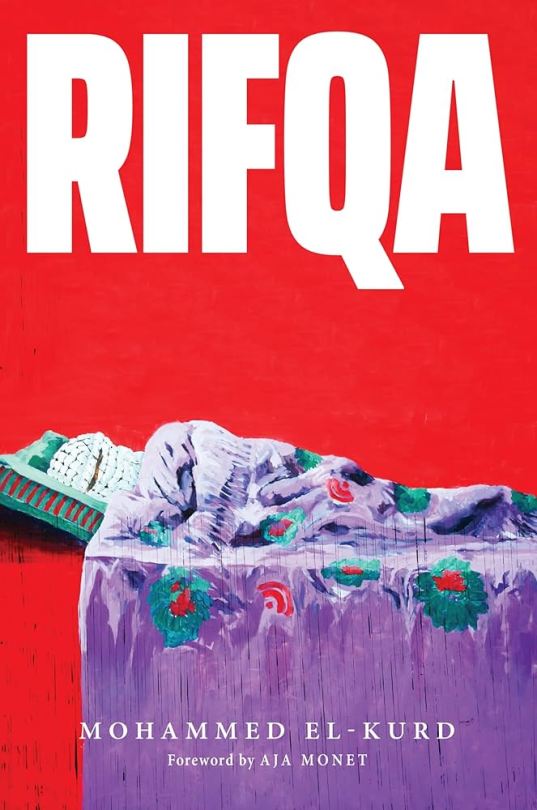

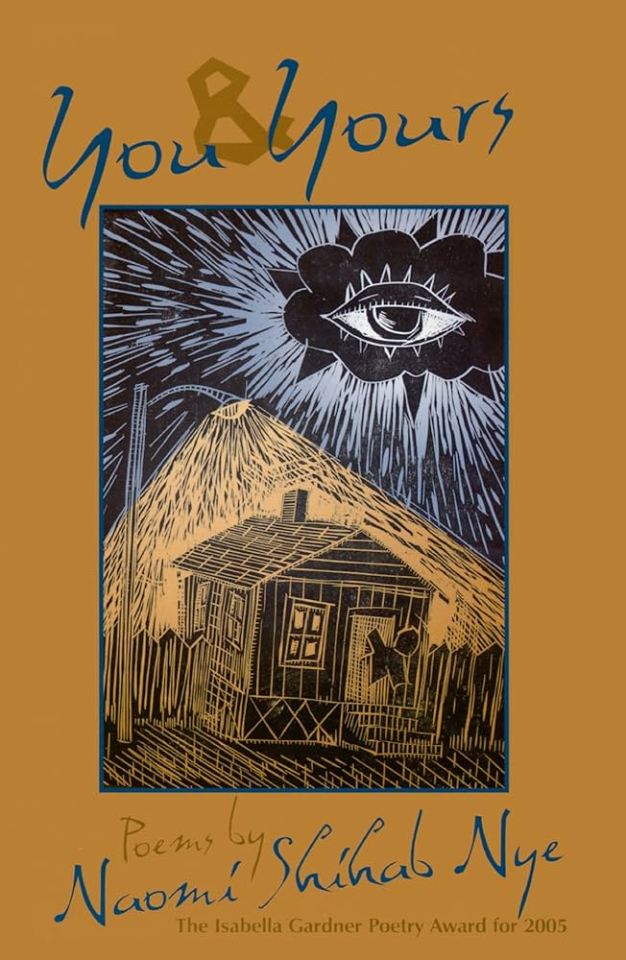
Some books of poetry by Palestinian authors that I've read recently. I'll link to where you can purchase them if you want to support the authors/publishers (once the global strike is over). (Or you can see if your library has them right now.)
The Tiny Journalist by Naomi Shihab Nye (BOA Editions / Bookshop)
Before the Next Bomb Drops: Rising Up From Brooklyn to Palestine by Remi Kamazi (Haymarket Books / Bookshop)
The Adam of Two Edens by Mahmoud Darwish (Syracuse University Press / Bookshop)
The Tent Generations: Palestinian Poems edited by Mohammed Sawaie (Banipal Books / Bookshop)
The Twenty-Ninth Year by Hala Alyan (Little District Books / Bookshop)
Water & Salt by Lena Khalaf Tuffaha (Red Hen Press / Bookshop)
Rifqa by Mohammed El-Kurd (Haymarket Books / Bookshop)
Things You May Find Hidden in My Ear by Mosab Abu Toha (City Lights / Bookshop)
You & Yours by Naomi Shihab Nye (BOA Editions / Bookshop)
#poetry#palestine#palestinian poetry#naomi shihab nye#remi kamazi#mohammed sawaie#hala alyan#mohammed el kurd#mosab abu toha#lena khalaf tuffaha#lulu speaks#lulu reads#books
97 notes
·
View notes